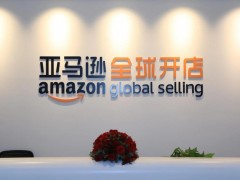Why is Alibaba being left further and further behind by Amazon?
阿里巴巴和亚马逊是全球电商领域的两大巨头,但近年来阿里巴巴在某些方面被亚马逊越甩越远,主要原因有以下几点:战略差异:阿里巴巴侧重于在中国的本土化电商业务,注重线下融合、数字化金融和云计算等多元化发展。而亚马逊则持续深化全球电商布局,不断拓展物流网络和云计算等基础设施。技术投入:亚马逊在技术创新和研发上投入巨大,推动了其人工智能、大数据和云计算等领域的快速发展。相比之下,阿里巴巴在这些领域的投入相对较少。全球化战略:亚马逊积极推进全球化战略,不断拓展国际市场,尤其是在欧美等发达地区。阿里巴巴虽然也有海外布局,但在国际市场的拓展上相对较为保守。企业文化:亚马逊的企业文化强调客户至上、创新、追求卓越和长期发展等理念,为其业务发展提供了强大的精神支持。而阿里巴巴则在一定程度上过于注重短期的商业利益,忽视了长期的品牌价值和企业文化建设。监管环境:在监管环境方面,亚马逊所处的美国市场相对较为稳定和开放,为其业务发展提供了较好的政策环境。而阿里巴巴则在中国面临较为复杂的监管环境,对其业务发展带来了一定的不确定性。综上所述,阿里巴巴被亚马逊越甩越远的原因是多方面的,包括战略差异、技术投入、全球化战略、企业文化和监管环境等。但随着市场的变化和竞争的加剧,阿里巴巴也在不断调整战略,寻求新的发展机遇和突破口。
Professional answer
Alibaba and Amazon are two giants in the global e-commerce field, but in recent years, Alibaba has been left further and further behind by Amazon in some aspects. The main reasons are as follows: Strategic differences: Alibaba focuses on localized e-commerce business in China, focusing on diversified development such as offline integration, digital finance and cloud computing. Amazon continues to deepen its global e-commerce layout and continuously expands its logistics network and cloud computing infrastructure. Technology investment: Amazon has invested heavily in technological innovation and R&D, which has promoted the rapid development of its artificial intelligence, big data and cloud computing. In contrast, Alibaba's investment in these areas is relatively small. Globalization strategy: Amazon actively promotes its globalization strategy and continuously expands its international market, especially in developed regions such as Europe and the United States. Although Alibaba also has overseas layout, it is relatively conservative in expanding its international market. Corporate culture: Amazon's corporate culture emphasizes concepts such as customer first, innovation, pursuit of excellence and long-term development, providing strong spiritual support for its business development. Alibaba, on the other hand, pays too much attention to short-term commercial interests to a certain extent and ignores long-term brand value and corporate culture construction. Regulatory environment: In terms of the regulatory environment, the US market where Amazon is located is relatively stable and open, providing a good policy environment for its business development. Alibaba, on the other hand, faces a more complex regulatory environment in China, which brings certain uncertainties to its business development. In summary, Alibaba is being left further and further behind by Amazon due to many factors, including strategic differences, technology investment, globalization strategy, corporate culture and regulatory environment. However, as the market changes and competition intensifies, Alibaba is also constantly adjusting its strategy to seek new development opportunities and breakthroughs.
Similar Q&A
recommend What is the name of Alibaba's artificial intelligence?
E-c News Continuously pushing e-commerce knowledge to you








Latest Q&A More
-
Do I need a trademark to open a franchise store on Pinduoduo to sell books?
#Pinduoduo#
-
How to withdraw from a Pinduoduo store
#Pinduoduo#
-
How to withdraw from Pinduoduo merchants
#Pinduoduo#
-
How to pay fees when closing a Pinduoduo store
#Pinduoduo#
-
How to withdraw from Pinduoduo
#Pinduoduo#
-
Which store on Pinduoduo is authentic?
#Pinduoduo#
-
Which stores on Pinduoduo can buy genuine products?
#Pinduoduo#
-
How to check the store under Pinduoduo
#Pinduoduo#
-
How to receive Pinduoduo online game products
#Pinduoduo#
-
How to sell the electronic version on Pinduoduo
#Pinduoduo#
E-c News 2026-02-28 14:23:44

- African netizens use China Africa cross-border e-commerce platform for online shopping
- how is the new seller of cross-border e-commerce doing?
- how can cross-border e-commerce Amazon sell on Amazon platform without goods?
- Amazon store opening process and cost analysis!
- Amazon plans to expand its pharmacy business on a large scale and will add same day delivery service
